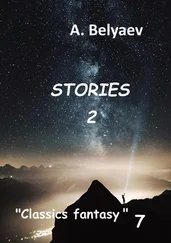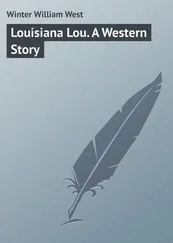As she sat on the mat in the rude bark lodge, the stern chief softened his voice, trying to talk with her; the uncouth women gently stroked her long soft hair, and some of the bolder and more curious touched her white hands wonderingly, while the throng of dusky faces pressed close round the pale, sweet creature whose eyes looked at them with a deep, dumb woe they could not understand.
When she had become familiar with the Willamette tongue, she told them that she was the daughter of a chief far away across the great water, who ruled a country as broad as the land of the Wauna and far richer. He had sent her as a bride to the ruler of another land, with a fabulous dowry of jewels and a thousand gifts besides. But the ship that bore her and her splendid treasures had been turned from its course by a terrible storm. Day after day it was driven through a waste of blackness and foam,—the sails rent, the masts swept away, the shattered hulk hurled onward like a straw by the fury of the wind. When the tempest had spent itself, they found themselves in a strange sea under strange stars. Compass and chart were gone; they knew not where they were, and caught in some unknown current, they could only drift blindly on and on. Never sighting land, seeing naught but the everlasting sweep of wave and sky, it began to be whispered in terror that this ocean had no further shore, that they might sail on forever, seeing nothing but the boundless waters. At length, when the superstitious sailors began to talk of throwing their fair charge overboard as an offering to the gods, the blue peaks of the Coast Range rose out of the water, and the ever rain-freshened green of the Oregon forests dawned upon them. Then came the attempt to enter the Columbia, and the wreck on the bar. [1]
Multnomah made the lovely princess his wife, and Sea-Flower showed the spirit of a queen. She tried to introduce among the Indians something of the refinement of her oriental home. From her the degraded medicine-men and dreamers caught a gleam of the majestic lore of Buddha; to the chiefs-in-council she taught something of the grave, inexorable justice of the East, that seemed like a higher development of their own grim unwritten code. Her influence was very great, for she was naturally eloquent and of noble presence. More than one sachem felt the inspiration of better, purer thoughts than he had ever known before when the “war-chief’s woman” spoke in council. Strange gatherings were those: blood-stained chiefs and savage warriors listening all intent to the sweetest of Indian tongues spoken in modulations that were music; the wild heart of the empire stirred by the perfumed breath of a woman!
She had died three years before the events we have been narrating, and had left to her daughter the heritage of her refinement and her beauty. Wallulah was the only child of the war-chief and his Asiatic wife, the sole heir of her father’s sovereignty.
Two miles from the council grove, in the interior of the island, was Wallulah’s lodge. The path that Multnomah took led through a pleasant sylvan lawn. The grass was green, and the air full of the scent of buds and flowers. Here and there a butterfly floated like a sunbeam through the woodland shadows, and a humming-bird darted in winged beauty from bloom to bloom. The lark’s song came vibrating through the air, and in the more open spaces innumerable birds flew twittering in the sun. The dewy freshness, the exquisite softness of spring, was everywhere.
In the golden weather, through shadowed wood and sunny opening, the war-chief sought his daughter’s lodge.
Suddenly a familiar sound attracted his attention, and he turned toward it. A few steps, and he came to the margin of a small lake. Several snow-white swans were floating on it; and near the edge of the water, but concealed from the swans by the tall reeds that grew along the shore, was his daughter, watching them.
She was attired in a simple dress of some oriental fabric. Her form was small and delicately moulded; her long black hair fell in rich masses about her shoulders; and her profile, turned toward him, was sweetly feminine. The Indian type showed plainly, but was softened with her mother’s grace. Her face was sad, with large appealing eyes and mournful lips, and full of haunting loveliness; a face whose strange mournfulness was deepened by the splendor of its beauty; a face the like of which is rarely seen, but once seen can never be forgotten.
There was something despondent even in her pose, as she sat with her shoulders drooping slightly forward and her dark eyes fixed absently on the swans, watching them through the bending reeds. Now one uttered its note, and she listened, seeming to vibrate to the deep, plaintive cry; then she raised to her lips a flute that she held in her hands, and answered it with a perfect intonation,—an intonation that breathed the very spirit of the swan. So successful was the mimicry that the swans replied, thinking it the cry of a hidden mate; and again she softly, rhythmically responded.
“Wallulah!” said the chief.
She sprang to her feet and turned toward him. Her dark face lighted with an expressive flash, her black eyes shone, her features glowed with joy and surprise. It was like the breaking forth of an inner illumination. There was now nothing of the Indian in her face.
“My father!” she exclaimed, springing to him and kissing his hand, greeting him as her mother had taught her to do from childhood. “Welcome! Were you searching for me?”
“Yes, you were well hidden, but Multnomah is a good hunter and can always track the fawn to its covert,” replied the chief, with the faint semblance of a smile. All that there was of gentleness in his nature came out when talking with his daughter.
“You have come from the council? Are you not weary and hungry? Come to the lodge, and let Wallulah give you food, and spread a mat for you to rest upon.”
“No, I am hungry only to see Wallulah and hear her talk. Sit down on the log again.” She seated herself, and her father stood beside her with an abstracted gaze, his hand stroking her long, soft tresses. He was thinking of the darker, richer tresses of another, whose proud, sad face and mournful eyes with their wistful meaning, so like Wallulah’s own, he, a barbarian prince, could never understand.
Although, according to the superstitious custom of the Willamettes, he never spoke the name of Sea-Flower or alluded to her in any way, he loved his lost wife with a deep and unchanging affection. She had been a fair frail thing whose grace and refinement perplexed and fascinated him, moving him to unwonted tenderness and yearning. He had brought to her the spoils of the chase and of battle. The finest mat was braided for her lodge, the choicest skins and furs spread for her bed, and the chieftainess’s string of hiagua shells and grizzly bear’s claws had been put around her white neck by Multnomah’s own hand. In spite of all this, she drooped and saddened year by year; the very hands that sought to cherish her seemed but to bruise; and she sickened and died, the delicate woman, in the arms of the iron war-chief, like a flower in the grasp of a mailed hand.
Why did she die? Why did she always seem so sad? Why did she so often steal away to weep over her child? Was not the best food hers, and the warm place by the lodge fire, and the softest bearskin to rest on; and was she not the wife of Multnomah,—the big chief’s woman? Why then should she droop and die like a winged bird that one tries to tame by tying it to the wigwam stake and tossing it food?
Often the old chief brooded over these questions, but it was unknown to all, even to Wallulah. Only his raven tresses, cut close year by year in sign of perpetual mourning, told that he had not forgotten, could never forget.
The swans had taken flight, and their long lingering note sounded faint in the distance.
Читать дальше












